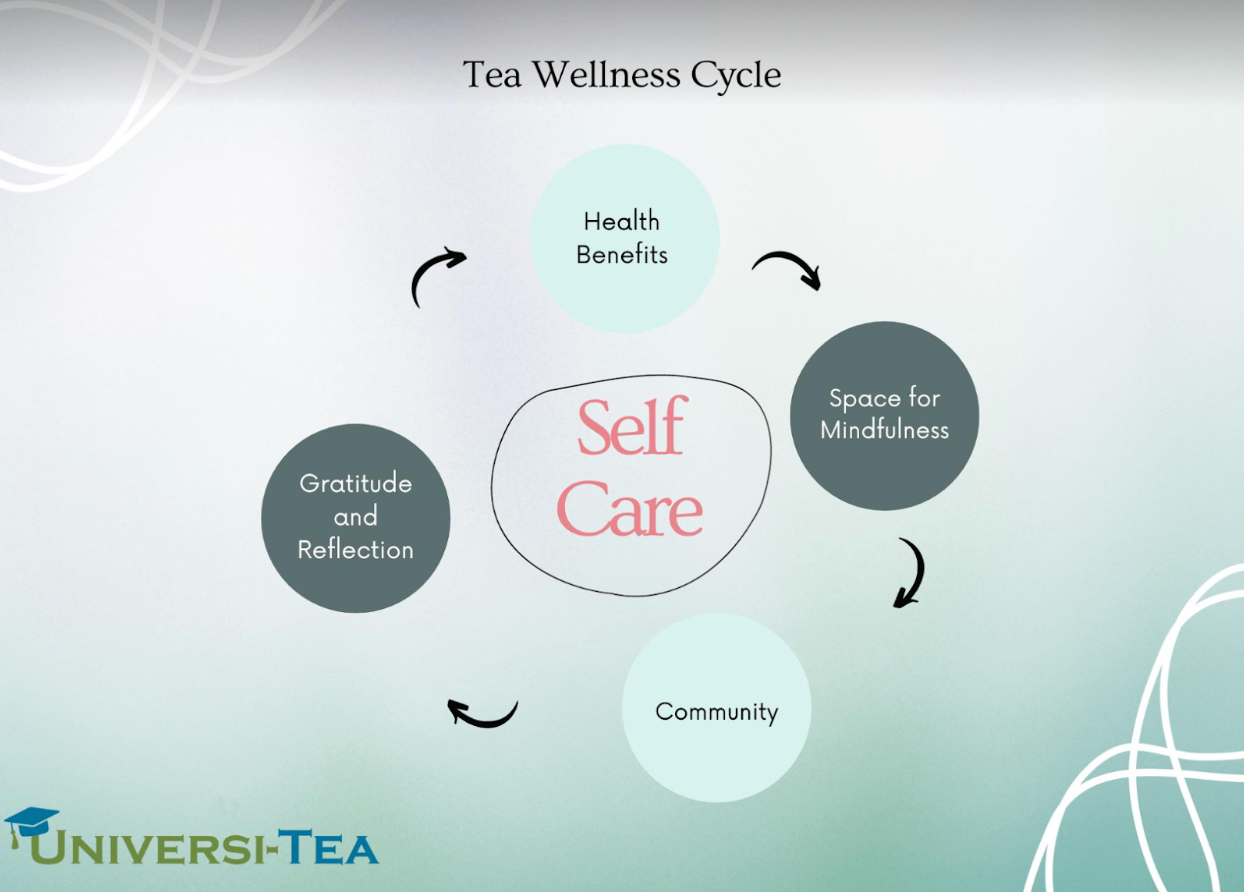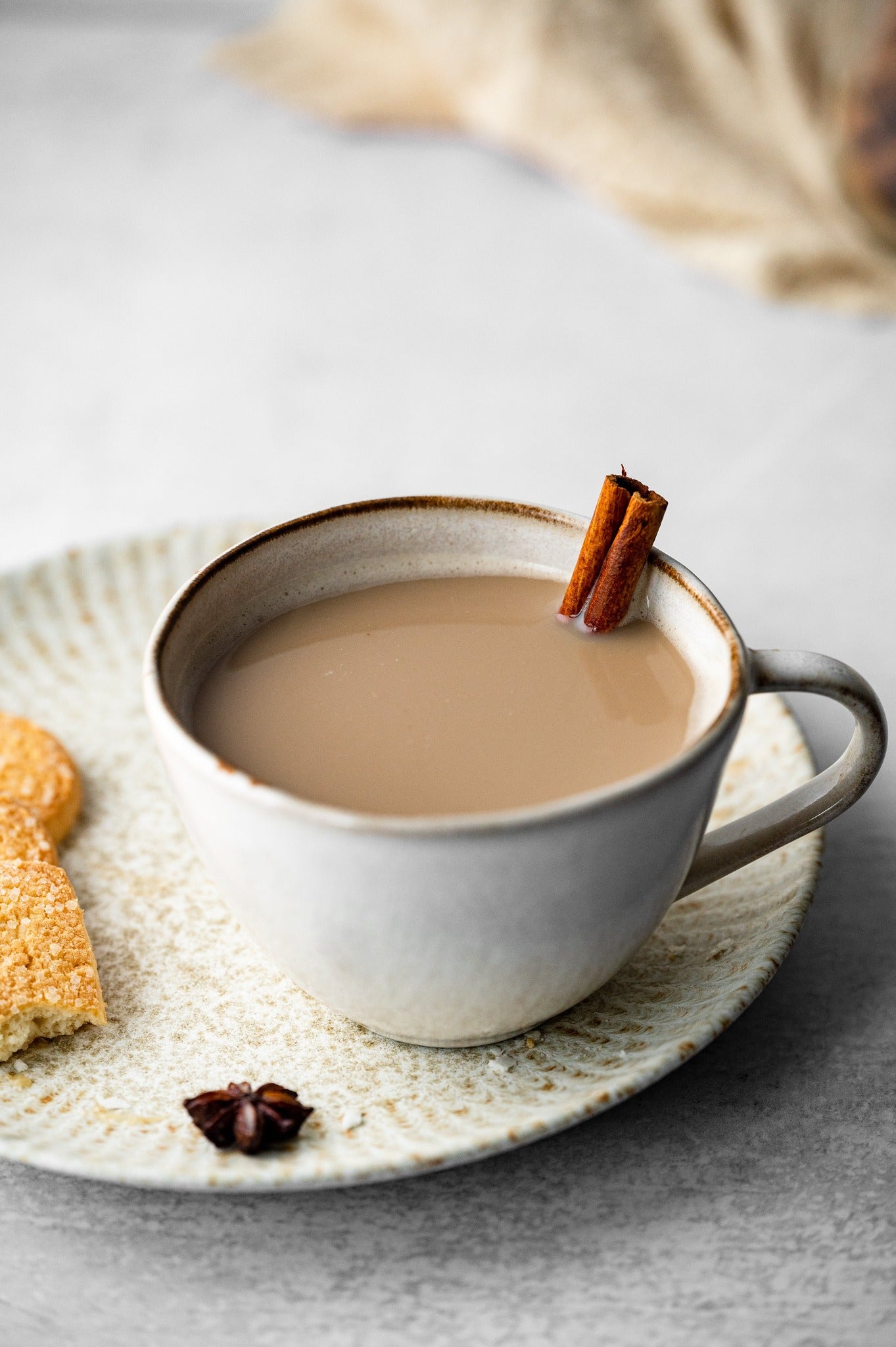In the midst of this economy, our evolving society, and the chaos of the holiday season; finding moments of serenity and self-care is essential for maintaining well-being.
The ancient practice of tea wellness seamlessly intertwines with the modern pursuit of balance. Beyond being a soothing beverage, tea embodies a holistic approach to self-care, revolving around four key elements: health benefits, space for mindfulness, community, and gratitude.
Health Benefits
The foundation of the tea wellness cycle lies in the plethora of health benefits found in various teas. From the antioxidant-rich green tea to the calming chamomile, each cup is a unique blend of wellness benefits. Whether it's boosting metabolism, enhancing digestion, or reducing inflammation, tea becomes a vessel for self-care that nourishes the body and soul.
Disclaimer!
No matter how many supplements you take for pure medicinal value or the quality of their ingredients, that alone will not guarantee good or even improved health. Think about the couch potato who might take something that is supposed to improve cardiac function but never considers even so much as taking a walk for exercise.
Lifestyle matters.
Space for Mindfulness
The simple act of preparing and sipping tea provides an opportunity to engage in mindfulness. The tea wellness cycle encourages individuals to slow down, to breathe deeply, and to appreciate the present moment.
My grandfather took time to make tea every morning after his walk and tai chi exercises. He even did a Chinese tea ceremony every morning as well. It was all very slow, and his routine took a good bit of time every single day.
As a child, I had trouble appreciating, or even understanding it. I wanted everything fast and immediate, which always left me wondering, “Why does Grandpa do his weird thing and take all this time out of his day?”
Now that I’m older and living in our fast-paced, instant world with social media and round-the-clock instant news everywhere… I realize that I have a need for calm. A need to sit down and make space for myself.
My grandfather had it right all along. It makes sense for people who drink tea to probably have lower mortality rates because they’re slowing down rather than speeding through their day...
Even if it’s only for their own personal tea time.
However, tea time creates a mindfulness that tends to carry over into other parts of their day and lives. They’re likely living more holistically and not simply eating and drinking certain things for their health benefits. It all fits together.
Community
There is definitely a certain lifestyle that surrounds tea and tea drinking. In fact, that is one of the reasons why we started Sipping Streams.
I noticed that many people shared stories about their own experiences with tea with their families, friends, and loved ones. They talked about how tea brought comfort to them when they were sick or didn’t feel well. They talked about how much they enjoyed taking time for tea as a break from daily activities.
I realized that everyone I spoke with had some sort of memory or story tied to tea in their lives. After all, tea is the number one most consumed beverage in the world next to water.
Tea has a remarkable ability to bring people together. Whether it's a quiet moment shared with a friend or a bustling tea ceremony, the communal aspect of tea is a powerful force in self-care.
Engaging in the tea wellness cycle with others creates a sense of connection and support.
Gratitude
Gratitude is a key component of the tea wellness cycle, reminding us to appreciate the simple pleasures in life. Cultivating gratitude transforms the act of drinking tea into a ritual of appreciation, a daily reminder to acknowledge and celebrate the positive aspects of life.
We need to have gratitude about emotions, about the situation, and about everything. That is what seals the deal in us becoming truly whole. We need to accept what is and what has happened in our lives – both good and bad. We must accept even the things we don’t really like about ourselves. We have to admit that we each have our own personal struggles with the different relationships we have or with the battle that goes on within us.
As we navigate the complexities of our world, integrating the tea wellness cycle into our self-care routines becomes a beacon of balance and tranquility.
Through the health benefits of diverse teas, the mindfulness cultivated in the process, the sense of community it fosters, and the gratitude it encourages, tea becomes a holistic elixir for well-being.
Use this as a reminder to prioritize your health & wellness this holiday season, and appreciate those you love from each corner of your life!
With Gratitude,
Jenny Tse
Owner & Founder of Sipping Streams
—
P.S. If you’re interested in putting your love for tea into a more formal practice, check out our Universi-Tea Program! This is a place where you can become a certified tea specialist from anywhere in the world.



